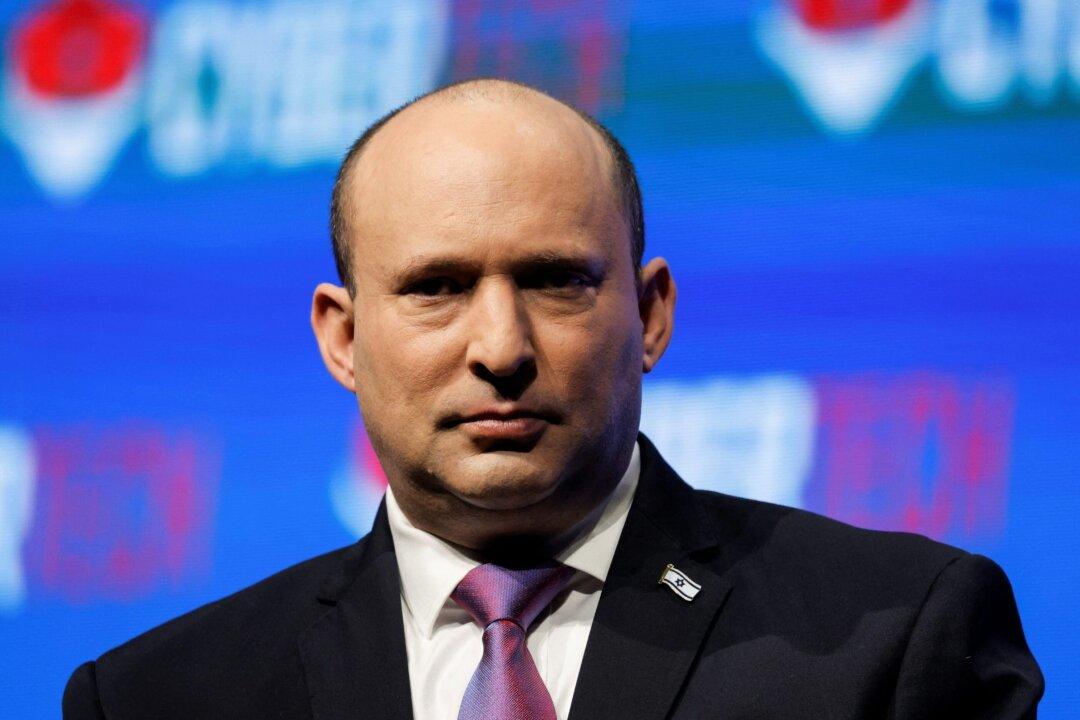JERUSALEM—Israeli Prime Minister Naftali Bennett met Russian President Vladimir Putin in the Kremlin on Saturday to discuss the war in Ukraine and later spoke by phone with Ukrainian President Volodymyr Zelensky, Bennett’s spokesperson said.
Bennett is coordinating his efforts in the crisis with the United States, France, and Germany, an Israeli official said.





